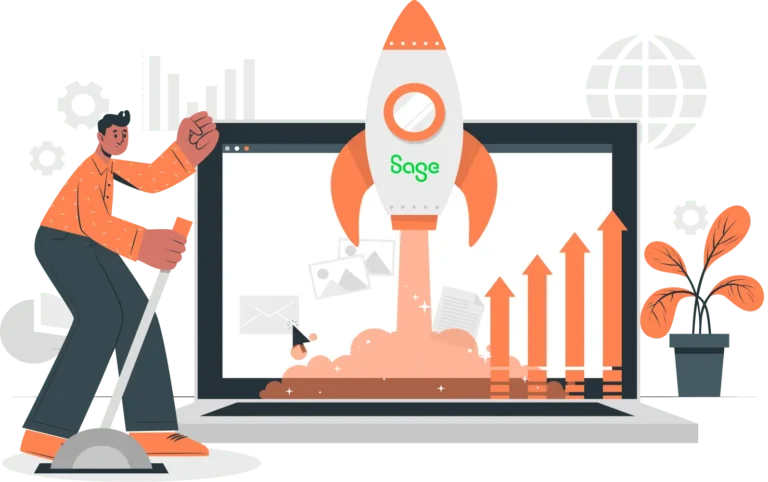- Solutions
-
-

Solutions
Perfect eCommerce solutions for any business. We provide customized solutions for B2B and B2C businesses across multiple industries.
Learn more
-
-
- Products
-
-

Products
Streamline backend operations, improve inventory management, and more with our business management software.
Learn morePLATFORM
-
-
- Services
-
-

Services
We go beyond software to provide the customizations, services, and support your business needs.
Learn more
-
-
- Industries
-
-

Industries
Business management software tailored to meet the needs of specific industries, including industry-specific regulations.
Learn moreINDUSTRIES
-
-
- Resources
-
-

Resources
Learn more about business management software and the latest developments in the industry.
Learn more
-
-

May 11, 2021
In a relatively short time, COVID has drastically changed almost all areas of life, from how we work to family life. Here are the top five ways COVID has impacted small business, according to a survey of more than 750 North American businesses by the SMB Group.

How Has COVID Impacted Small Business?
1. Reducing Payroll. The most significant impact was a reduction in payroll among small businesses. Employment dropped by more than 17% following the COVID declaration of emergency on March 13, 2020. Thirty-five percent of businesses reported that they had furloughed or laid off employees, or were planning to conduct layoffs. Other businesses cut hours or reduced salary/pay. In an encouraging sign for how well small businesses were able to handle COVID, 41% did not take action to reduce payroll among employees.
The larger an SMB is in terms of headcount, the more likely to it is to have moved to reduce payroll and the more likely it is to plan to bring back furloughed or laid-off employees. There were significant variations by industry both in terms of payroll losses and payroll gains.
The top five types of companies most likely to have reduced payroll include hospitality, wholesale/distribution, manufacturing-process life sciences, and financial services/banking/insurance.
In addition to impacting SMB employees, COVID also had an impact on contractors or freelancers hired by SMBs. Forty-seven percent of SMBs reduced contractor contracts, hours, or pay.
2. Bringing Workers Back. During the next six months, the top five industries that are most likely to increase payroll include IT services, utilities/communications/telecom, education, healthcare/medical/dental, and life sciences.
Other industries likely to increase payroll include hospitality, education, and nonprofits–sectors that were hit badly by the pandemic.

3. Working From Home. During the pandemic, two-thirds of SMBs instituted work-from-home (WFH) programs. Sixty-seven percent said that they had either established a WFH for the first time, or expanded their existing program, due to COVID. Of companies that instituted WFH programs, 52% said that WFH had a positive impact on productivity, while 31% found that it had a neutral impact.
However, increased WFH has posed challenges, too. Security threats are one of the biggest challenges posed by increased WFH. The top three security challenges are: home/public network security; employees using personal, unmanaged devices; and a lack of visibility and control.
Increased employer support for WFH among SMBs is expected to remain after the pandemic. Experts expect employers to adopt a more flexible, hybrid work environment.
4. Increased Support for WFH Employees. More than half of companies said they planned to increase spending on equipment for their WFH employees over the next 12 months. About 20% planned to invest in solutions to support employees such as remote IT support, HR and talent management, cloud collaboration, and network connectivity. Some also plan to beef up their infrastructure to address productivity and security challenges posed by WFH.
5. Uncertainty. The biggest ongoing challenge facing SMBs is uncertainty. The top source of uncertainty is dealing with uncertain or changing market conditions (38%), operating under new safety requirements (35%), sustaining revenues (34%), and attracting new customers (33%).
Medium- and mid-market businesses will face significant challenges when it comes to employee-related issues. As companies that furloughed or laid off employees try to bring them back, they may find that the employees have secured opportunities elsewhere.

Ongoing Small Business COVID Questions
COVID will continue to pose challenges for SMBs, including changing market conditions, new safety regulations that can hurt business, and uncertainties around employee staffing. However, COVID also offers opportunities, too. SMBs have the advantage in that they are often more nimble than larger businesses and may be able to adapt to market changes more quickly.
The pandemic has accelerated the adoption of new technology among both B2B and B2C businesses. As SMBs grapple with a changed business landscape, this could be an excellent opportunity to streamline operations. Companies could also consider revamping or improving their eCommerce offerings to provide a better customer experience and gain an edge over their competitors.
About Us
CertiPro is a full-service technology partner. We help businesses streamline their backend operations and provide a better experience to their customers. In addition to offering ERP software and implementations, we also have a custom cycle counting enhancement for Sage ERP and a two-way Sage Magento integration that streamlines the eCommerce purchasing process. Click here to contact us and schedule a demo.
Send us a message
Please fill out the form below and one of our associates will contact you shortly.
Training and optimization available for current Sage software

